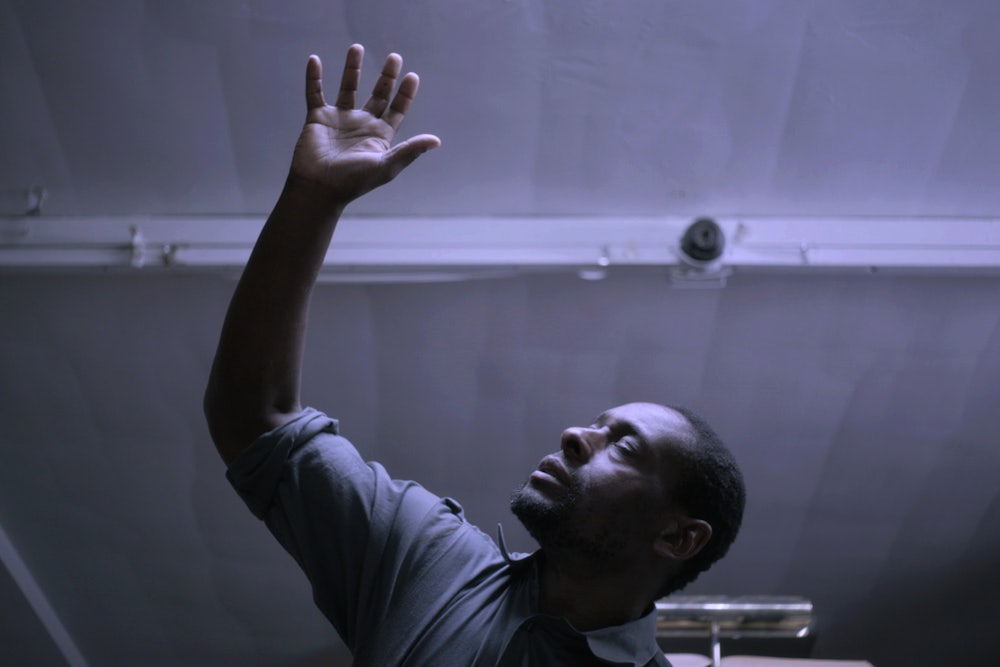
What we talk about when we talk about “Black American Cinema” remains an obscure thing, even in the year of #oscarssowhite and Barry Jenkins’s Moonlight. It was a triumphant and tragic twelve months, I suppose. Black directors, those who had created their own opportunities when none were handed to them by Hollywood, emerged at a clip not seen in a quarter century. In July 1991, the New York Times Magazine ran a cover story with the title “They’ve Gotta Have Us: Hollywood’s Black Directors,” in which several directors, almost all of them male, were singled out: Spike Lee, Mario Van Peebles, John Singleton, Matty Rich, Charles Lane, and The Brothers Hudlin of House Party fame. The studios released more movies by black directors that year than in the previous ten years combined, reaching audiences with work that seemed unfathomable in the past.
It seemed, at first, that 2016 would have a similar narrative. An all-too-rare historical film about genuine black American revolt, Nate Parker’s The Birth of a Nation, took Sundance by storm in January, selling for $17 million to Fox Searchlight and winning the grand jury prize for U.S. Narratives. Members of the industry who gathered in the thin, mountain air were largely willing to look past the film’s curiously ahistorical and manipulative telling of Nat Turner’s slave rebellion—instead they saw something that could be used to exploit hungry black audiences and guilty white audiences alike. Black film circles celebrated even before they had seen the film—this was surely what we had all been waiting for—and the media swooned, trumpeting the film as a sure-fire hit and essential conversation starter.
The Birth of a Nation proved them right, but not for the reasons anyone involved with the film had intended. Slated for wide release in October, the buzz around the film began to shift over the summer with renewed interest in Parker’s 2001 Penn State rape trial, where the director, then a Big Ten wrestler, and his college roommate (who also co-wrote The Birth of a Nation), had been tried for raping an unconscious woman, an acquaintance and previous sexual partner of Parker’s. The news stymied the movie’s award season traction, and Parker, who had only recently been embraced as the “Great Black Male Hope” by the industry at large, suddenly became a pariah.
After an initial burst of energy, the careers of many of the directors in the “Black New Wave” of the early 1990s didn’t last—especially for female directors, none of whom were prominently featured in the Times magazine article. Perhaps it’s a marker of progress that nowadays, instead of Julie Dash’s disappearance after her remarkable 1991 film Daughters of the Dust—the first by an African American woman to get a theatrical release stateside—Ava DuVernay followed the success of Selma with a spectacular year in 2016, one which included an Oprah-approved television series, the announcement of a big-budget studio film, and a documentary of startling urgency. After complaints from some quarters she was snubbed for an Oscar nomination for Selma, DuVernay became the first black woman to open the New York Film Festival with The 13th, her blistering look at mass incarceration which was immediately thrust into wide viewership via Netflix and remains at the heart of the award season race for best documentary. So does Haitian director Raoul Peck’s I Am Not Your Negro, another film festival darling which presents a dazzling account of James Baldwin’s life and times through the lens of his last, unfinished work and the relationships he held with three of the most iconic martyrs to the Civil Rights cause: Medgar Evers, Malcolm X, and Martin Luther King Jr.
Both of these directors show no signs of slowing down. Peck’s next film, a European co-production about the burgeoning intellectual life of a young Karl Marx, will premiere in Berlin in 2017, and DuVernay is currently at work on her $100 million adaptation of A Wrinkle in Time. Are these works of black cinema? Perhaps that’s a question for another day. What we do know is that Peck, who runs the French national film school and was once culture minister in Haiti, and DuVernay, the first black woman ever to direct a film with a budget of that scale, are working in rarified territory that has not previously been the purview of black directors. 29-year-old Ryan Coogler, who’s marvelous Creed thrust him into the award season conversation last year, is also on board for a big-budget Afrocentric comic book adaptation of his own, Marvel’s Black Panther. Both Coogler and DuVernay came up through the American indies but are now playing with house money on a big scale, but without the protections afforded to a director like Peck, who is working in the European system. One wonders if they’ll be able to maintain the specificity and nuance that made their earlier work sing while working for major studios that too often grind the personality, and the politics, out of most directors.
Barry Jenkins has long been regarded by the indie film cinerati—including heavyweights such as Steven Soderbergh—as someone to watch after his 2008 micro-budget feature Medicine for Melancholy. Finally getting his breakthrough eight years later with Moonlight, a Brad Pitt-financed bildungsroman which tells a triptych of stories about a gay, muscle bound, bandanna wearing ghetto drug pusher, Jenkins quickly seized the star that seemed destined for Parker, providing the year’s most emotionally crushing theatrical experience this side of Manchester of the Sea. The inner life of a young man from the derelict tracts of Miami’s Liberty City, even told with such aesthetic magnetism, is not normally the fodder of Oscar bait, nor are explorations of the ways in which America manufactures damaged black men. But the Cubs are not normally the World Series champions. And Donald Trump is not normally the President-elect. We live in strange times.
While Denzel Washington’s adaptation of August Wilson’s Fences and the Apollo-mission re-write Hidden Figures will soak up the black cinema conversation over the months of awards jockeying ahead, the fact is, beyond Moonlight, the most interesting films about black characters were being made out on the margins, by black and white filmmakers alike. Jake Mahaffy’s Free In Deed, about the death of an autistic black child during a faith healing at a black pentecostal church in a downtrodden stretch of Memphis, is one of the most remarkable motion picture experiences of the year. The film, made with a mix of black professionals and non-actors, and directed by Mahaffy, a Midwestern white man who lives in New Zealand, was virtually ignored by the American festival circuit after premiering last year in Venice, but scored four nominations for the Independent Spirit Awards. Stella Meghie’s Jean of the Joneses, a hit at the SXSW and Toronto Film Festivals before finding its way to TV One, was one of the year’s great unheralded gems. It tells the story of a family of well-to-do West Indian women in a style that has more in common with Noah Baumbach and Wes Anderson than Spike Lee. Meghie’s film centers on a female author, a Zadie Smith-esque wunderkind, whose family is thrown into turmoil when her grandfather returns to the family enclave only to drop dead on the doorstep. Meghie has already shot her next picture and her clever sensibility should allow her work to continue to find larger audiences.
With talented outsiders knocking at the door, the studio system would do better to split up the money being spent on large-scale indulgences, even directed by able hands like DuVernay and Coogler. Spreading the wealth would mean that that films about the inner lives of recognizable people, not just outsized heroes, could be made by directors like Stella Meghie, Julie Dash, and Darnell Martin, whose 2009 film Cadillac Records is the best narrative film directed by a black American woman in this young millennium. The short-term trends of the marketplace prohibit American film studios from being so brave, but our perilous times require a mainstream American film culture that pushes past the spectacle-driven infantilism that has been a hallmark of Hollywood cinema since the dawn of Reagan and the end of “The New Hollywood” of the 1970s, one that inhabits the lived experiences of Americans from all walks of life.
We can surely build a richer black film culture if elder stateswomen such as Dash, mid-career artists like Martin, and new voices like Meghie could have careers that matched those of prolific black female literary figures like Toni Morrison or Zadie Smith. (Smith’s new novel Swing Time, like her other works, deserves these directorial talents.) These black female voices—like those of Issa Rae, of Insecure, and Dee Rees of HBO’s Bessie and the forthcoming Mubbound—should find feature financing once every year or two instead of five or ten. It should be a source of national shame that there isn’t a tax-payer supported apparatus to fill in the gap left by a white-dominated private film finance infrastructure that is mostly interested in telling stories that reflect the blinkered world views and experiences of those on the inside.
But black people have to show up for these films too. Moonlight has grossed around $10 million this year, proving to be a critical breakthrough but only a small scale commercial hit. (Dolemite, Rudy Ray Moore’s crudely made blaxploitation classic, made $12 million dollars in 1975 by comparison.) Brokeback Mountain, Ang Lee’s watershed drama about the forbidden love between white cowboys made $178 million dollars domestically when it was released in 2005, and both Tyler Perry and Kevin Hart’s latest efforts have still reached far more people who are black than Moonlight. So the work of making meaningful “Black American Cinema,” whatever that may mean, reach its intended audience, whoever they may be, remains a work in progress.
